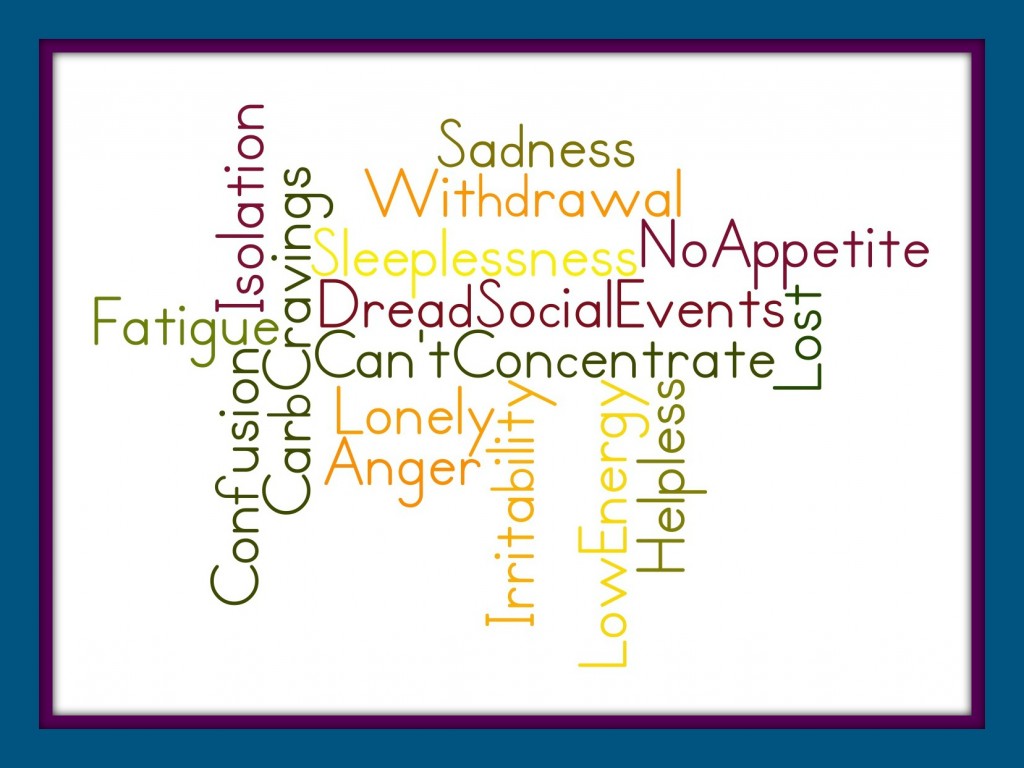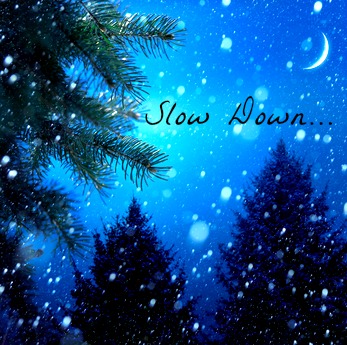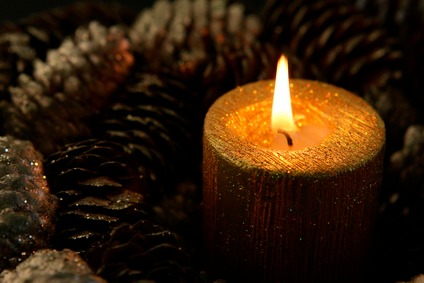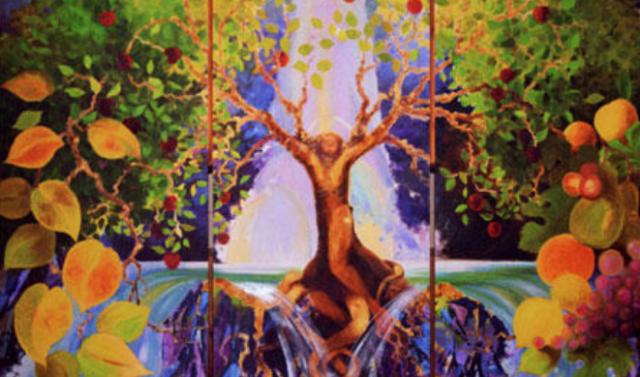“Grief is like a long, winding valley,
where any bend may reveal a totally new landscape.”
–C.S. Lewis
When grieving the loss of a loved one, the holiday season is like a “totally new landscape” along the winding journey of grief. The ordinary, daily routines of living after a loved  one’s death are hard enough. But the holidays–Thanksgiving, Christmas, Hanukah, and New Years celebrations—create a focus for your loss that is magnified beyond everyday grief. If your family member, friend, or a beloved pet’s death is recent, navigating the holidays for the first time is likely to bring up painful feelings and questions. But even if the death is more distant, you may be shocked at the intensity of feelings that come up even years later.
one’s death are hard enough. But the holidays–Thanksgiving, Christmas, Hanukah, and New Years celebrations—create a focus for your loss that is magnified beyond everyday grief. If your family member, friend, or a beloved pet’s death is recent, navigating the holidays for the first time is likely to bring up painful feelings and questions. But even if the death is more distant, you may be shocked at the intensity of feelings that come up even years later.
The reality of loss never occurs all at once. Grief is, indeed, a process. You won’t know your own unique path through that winding valley until the journey is well underway. In our culture, the holidays are “supposed to be” times of family togetherness, celebration, and joy. But when you’re grieving, instead you might experience deep sadness, emptiness, and dread. The contrast between the feelings inside of you, and the holiday cheer outside of you, can add immensely to your pain.
Why Is My Grief So Much Harder During The Holidays?
There are many reasons the grieving process might be harder during the holidays:
- Expectations that you “should” feel happy or cheerful
- The dramatic increase in activity during the holidays: decorating, mailing cards, baking, buying presents, going to parties and concerts, attending religious services
- Decreased energy, & increased fatigue or depression
- Loss of your loved one’s companionship or help with taking care of holiday tasks
- People’s uncertainty about what to say (or not to say) about your loved one’s death
- The rest of the world is celebrating like always—but for you, the holidays will never be the same
- Commercialization of the holidays: Who cares about this year’s newest video game system or a big sale at the mall when you have this huge hole in your heart?
- Family Conflicts: Sometimes old family issues get rekindled or even intensify during the holidays after a loved one has died
Even if you’ve found a tolerable “rhythm” to help you get through normal, day-to-day life, the onset of the holiday season may catch you off guard. The intensity of feelings can be  frightening. Common, normal responses include: sleep disturbances, decreased energy, increased fatigue, sadness, or irritability, appetite problems (either no appetite; being hungry all the time; or, cravings for sugar and carbohydrates), inability to concentrate, a tendency to withdraw from normal activities, dreading social events, feeling “lost,” lonely, or helpless. Yet no two people grieve the same way. Your journey through grief will have its own unique twists and turns.
frightening. Common, normal responses include: sleep disturbances, decreased energy, increased fatigue, sadness, or irritability, appetite problems (either no appetite; being hungry all the time; or, cravings for sugar and carbohydrates), inability to concentrate, a tendency to withdraw from normal activities, dreading social events, feeling “lost,” lonely, or helpless. Yet no two people grieve the same way. Your journey through grief will have its own unique twists and turns.
Factors That Might Intensify Your Grief During The Holidays:
A number of circumstances may cause your grieving process to be even more difficult during the holidays. Some common factors that often intensify grief include:
- If this is the first holiday season after your loved one’s death
- Multiple deaths in recent months or years
- Other recent major stressors or losses: divorce, unemployment, a car accident, death of a beloved pet, bankruptcy, a major move, significant health problems, etc.
- Lack of a good support system of family, friends, a spiritual community, a counselor, grief support group, etc.
- Living far away from other family members
The Value Of Grief And Depression
It might sound strange, but the difficult feelings that accompany holiday grief can actually be very valuable. For instance, depression can be nature’s way of encouraging you to  take time out from ordinary responsibilities in order to tend to your grief. Depression slows down our body’s systems, preventing our major organs from being damaged. If we don’t ignore our feelings, or push ourselves to do too much, we can learn to respect this “slowing down process.”
take time out from ordinary responsibilities in order to tend to your grief. Depression slows down our body’s systems, preventing our major organs from being damaged. If we don’t ignore our feelings, or push ourselves to do too much, we can learn to respect this “slowing down process.”
Slowing down may be difficult, especially if you have an inflexible work schedule, or responsibilities for children or aging parents. But slowing down as much as possible–getting plenty of sleep, taking time for yourself, saying “no” to commitments that will take too much energy–can be crucial for your healing. You can learn to give yourself more compassion and self-care.
There are no simple answers to the question of how to deal with your grief during the holidays. Again, everyone grieves differently—your needs are unique. However, the following suggestions might help you on that winding journey of grief during the holiday season:
How to Cope With Your Grief During the Holidays
- Be gentle with yourself. Don’t expect to do as much as you typically do.
- Don’t force yourself to “get in the holiday spirit.” Instead, try paying attention to the needs of your spirit.
- Take good care of yourself physically. Eat nourishing food. Limit alcohol consumption. Get a little exercise. Get plenty of sleep.
- Spend time with people who allow you to talk about your feelings. Let yourself cry and feel sad if you need to.
- It’s also okay to enjoy yourself! During the grieving process, it’s normal for your feelings to ebb and flow across the whole spectrum of human emotions.
- Decide which holiday traditions to keep this year, and which ones to give up. Only do what feels meaningful and “do-able.” For instance, if sending out cards seems daunting, skip it this year.
- Choose a couple of new traditions for the holidays.
- Include the name of the person who has died in your conversations. If others sense you’re able to talk about your loved one, they may realize that your need to remember them is part of the healing process.
- Spend time looking at old family photos or videos that include the person who died. Family members might want to look at photos from previous holiday seasons, and/or share memories of your loved one.
- Consider creating one or more simple rituals to help you express your grief and validate your feelings around this loss. (See specific ideas below).
Whatever your spiritual beliefs, you can think of the season’s darker, colder days as a way the earth’s natural rhythms are “in sync” with your own grieving heart.
Remember that sadness and darkness are actually part of the rhythm of the holiday season. The days are shorter and darker. The weather is colder as we approach the Winter Solstice. Many spiritual traditions incorporate more solemn rituals into their winter holiday traditions. In the season of Advent, for example, Christians mark the 4-week period before Christmas. Advent is a more solemn season of preparation, a time of waiting in the darkness of winter, of hoping for the new light of Christ at Christmas. Whatever your spiritual beliefs, you can think of the season’s darker, colder days as a way that the earth’s natural rhythms are “in sync” with your own grieving heart.
Ideas For Holiday Rituals During Times of Grief
Rituals are a way of expressing your continued love for and memories of the person who died. They can be very simple. Some rituals may be carried out alone, while others might fit better shared in a small group of family members, or with your spiritual community. Rituals may or may not have specific religious or spiritual meaning. The important thing is that the ritual(s) you choose fit with your own belief system and energy level, and that they fit with the person your loved one was.
Some ideas for holiday rituals to honor your loved one and/or support your grief process are:
- Light a candle in his or her memory each day during the holiday season.
- Bring a few evergreen branches from your Christmas tree, a wreath, or other
 decorations to place by the grave.
decorations to place by the grave. - Hang the person’s stocking, or have a special basket, where family members can place notes, poems, stories or fond memories. Read the notes and memories out loud on Christmas.
- Leave an empty chair at the table during family gatherings.
- Buy a gift, or make a holiday food basket in memory of your loved one. Give it to someone in need, or to a church or other organization that provides assistance to people during the holidays.
- Buy a new, special ornament for your tree that reminds you of your loved one.
- Buy a living Christmas tree in their honor. After the holidays, plant it in your yard and watch it grow. The tree can be a symbol of hope and new life in the midst of your grief.
The power of a ritual lies in what it does for the participants. Ritual can transform “ordinary time” into “special time.” It can bring a sense of hope for the future to those with grieving hearts. Finally, ritual can provide sustenance for the journey through that winding valley of grief. Ritual honors your memories of the past, gives you strength for the present, and provides hope for new and beautiful landscapes ahead on your life’s journey.
If you’re grieving the death of a loved one, or struggling with other major losses, it can be helpful to talk to someone who can accompany you on grief’s winding path. If you’d like to talk about making an appointment, give me a call at (253) 761-8808 x2, or email me at joanna@soulcarepsychotherapy.com.
© 2013 Joanna Robinson, M.Div., M.Ed. All Rights Reserved. No part of this article may be distributed without permission.
